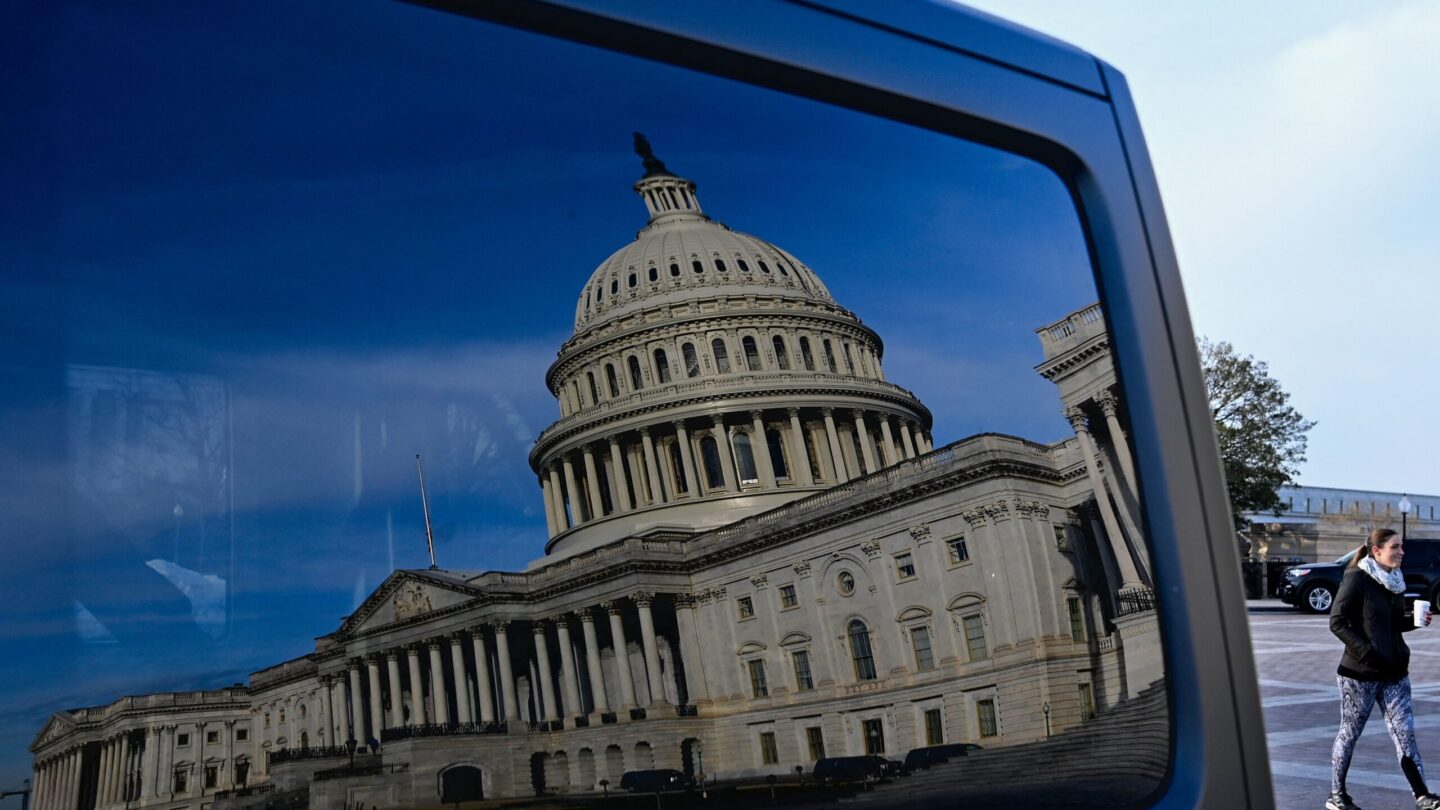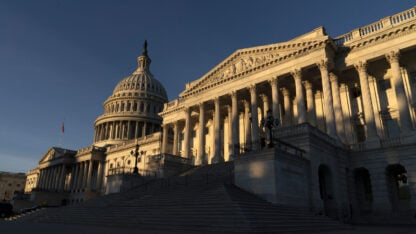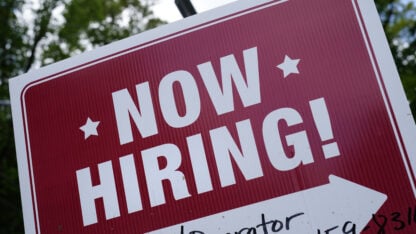Canceling a planned recess for this week, the Senate is set to debate two measures on Tuesday that Democrats say would make it easier for all Americans to vote and reverse efforts by several states to limit ballot access.
Versions of both measures, the John Lewis Voting Rights Advancement Act and the Freedom to Vote Act, have been approved by the House but face an uphill battle in the Senate.
While all senators who caucus with the Democrats have expressed support for these two bills, under current Senate rules it takes 60 senators to end debate and proceed to a vote. That’s not a number likely to be achieved in the evenly divided Senate on an issue that has grown increasingly partisan over the years.
In recent weeks, Democratic leaders from President Biden to Senate Majority Leader Chuck Schumer have called for the Senate to change its rules to pass these bills. But two Democrats, Sen. Krysten Sinema of Arizona, and Sen. Joe Manchin of West Virginia, have said they do not support eliminating the filibuster, a position they reiterated last week when Biden met with Senate Democrats.
“While I continue to support these bills, I will not support separate actions that worsen the underlying disease of division infecting our country,” Sinema said Thursday.
What would the John Lewis Voting Rights Advancement Act do?
The John Lewis Voting Rights Advancement Act, named for the late congressman from Georgia, aims to reverse a 2013 Supreme Court decision that struck down key portions of the Voting Rights Act of 1965.
That law required several states with a history of voting rights discrimination, largely in the South, to get preclearance from the Department of Justice for any changes to voting laws. The Lewis act would restore the requirement and update the formula used to determine which states must get preclearance. Other changes to voting laws in any state, such as relocating polling places and imposing strict voter ID requirements, would also be subject to preclearance.
What would the Freedom to Vote Act do?
The second bill the Senate is considering is the Freedom to Vote Act. It’s a more sweeping measure of the two, and would affect everything from the way congressional districts are drawn to how campaigns are financed.
The measure would:
- make election day a national holiday, aimed at making easier for all voters to get to the polls that day
- allow states to have early voting for at least two weeks prior to election day, including nights and weekends
- allow voting by mail with no excuses needed, and voters could put their ballots in drop boxes
- require that states make voting more accessible for people with disabilities
- require that states that require IDs for voting would have to broaden the types of identification acceptable. States would also have to offer same-day voting registration and online registration and also make it easier to register at places like departments of motor vehicles.
The measure would also outlaw partisan gerrymandering — that is, drawing congressional boundaries to the political advantage of one party or another — and would limit the ways states can purge people from voting rolls.
It would also impose new rules on how campaigns are paid for by limiting the use of so-called dark money by political action committees. Any group that spends more than $10,000 to influence an election would be required to disclose all donors.
A small donor matching system would be set up for House candidates. A new Election Assistance and Innovation Fund would match contributions up to $200 at a 6:1 ratio. The fund would not use taxpayer dollars and instead be financed through assessments paid on fines, penalties and settlements for certain tax crimes and corporate malfeasance.
The measure would also strengthen the Federal Election Commission’s ability to investigate charges of campaign abuses and require that states replace outdated voting machines with ones that, among other things, provide voters with paper records of their ballots.
Partisan divisions, uncertain outlook
Democrats and their allies say these bills would block states from making it harder for people, especially people of color, to cast their ballots. Dozens of states have enacted over 200 measures changing voting laws since the 2020 election, including some changes that expanded ballot access.
Republicans argue that many of the new laws passed by states are attempts to prevent voter fraud, and that the legislation before Congress amounts to a federal take over of what has been a state responsibility.
Democrats do not appear to have the votes to overcome a filibuster or to change those rules — and even President Biden, who last week gave a major speech on voting rights, election integrity and strengthening democracy in the hopes of spurring action, conceded that the outlook was grim.
“I don’t know that we can get it done,” he said. “As long as I have a breath in me, as long as I am in the White House, as long as I’m engaged at all, I’m gonna be fighting to change the way these legislatures have moved.”
Copyright 2022 NPR. To see more, visit https://www.npr.org.
9(MDAxODM0MDY4MDEyMTY4NDA3MzI3YjkzMw004))

9(MDAxODM0MDY4MDEyMTY4NDA3MzI3YjkzMw004))








